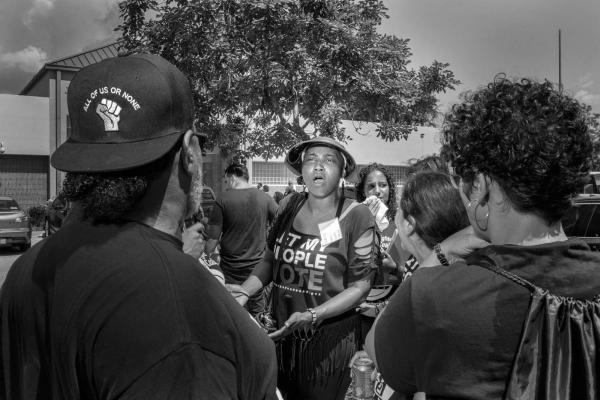LAST FALL'S MIDTERM elections brought the country’s single biggest expansion of the right to vote since the 26th Amendment lowered the voting age to 18.
Florida voters passed Amendment 4, a change to the Florida Constitution that automatically restores voting rights to 1.4 million Americans who have been living and working in our communities but politically disenfranchised because of criminal convictions in their past.
Before this amendment, Florida’s policy was extra strict—one of permanent disenfranchisement for all felonies, meaning that it did not matter what you did, how long ago it was, or how old you were when you did it. If you had a felony conviction, you could not get your right to vote back unless the government decided to specifically grant you clemency. That meant that even people who had long ago completed probation and parole were still unable to vote.
This outcome in Florida is to be celebrated, for several reasons. Amendment 4 promotes full citizenship and permits more people to participate in the electoral proc-ess. It ends a blatant Jim Crow policy. It encourages successful reintegration into the community. But it also brings core Christian teachings into the public square—and it is important that we discuss these teachings because there is still work to be done.
Disenfranchisement of those convicted of felonies is still widespread, if not the norm. The clearest exceptions are Maine and Vermont, where persons never lose their voting rights, even while they are incarcerated. In two states—Iowa and Kentucky—any felony conviction results in permanent disenfranchisement unless the government specifically restores an individual’s rights, similar to the approach Florida just changed. Some states permanently disenfranchise certain citizens, depending on the felony conviction. A number of states—18, in fact—disenfranchise returning citizens until all terms of their sentences have been completed, which can end up being years after they have returned to the community.
What are we getting out of disenfranchising people the criminal justice system has determined are appropriate to be living and working alongside us? What does scripture advise?
Read the Full Article

